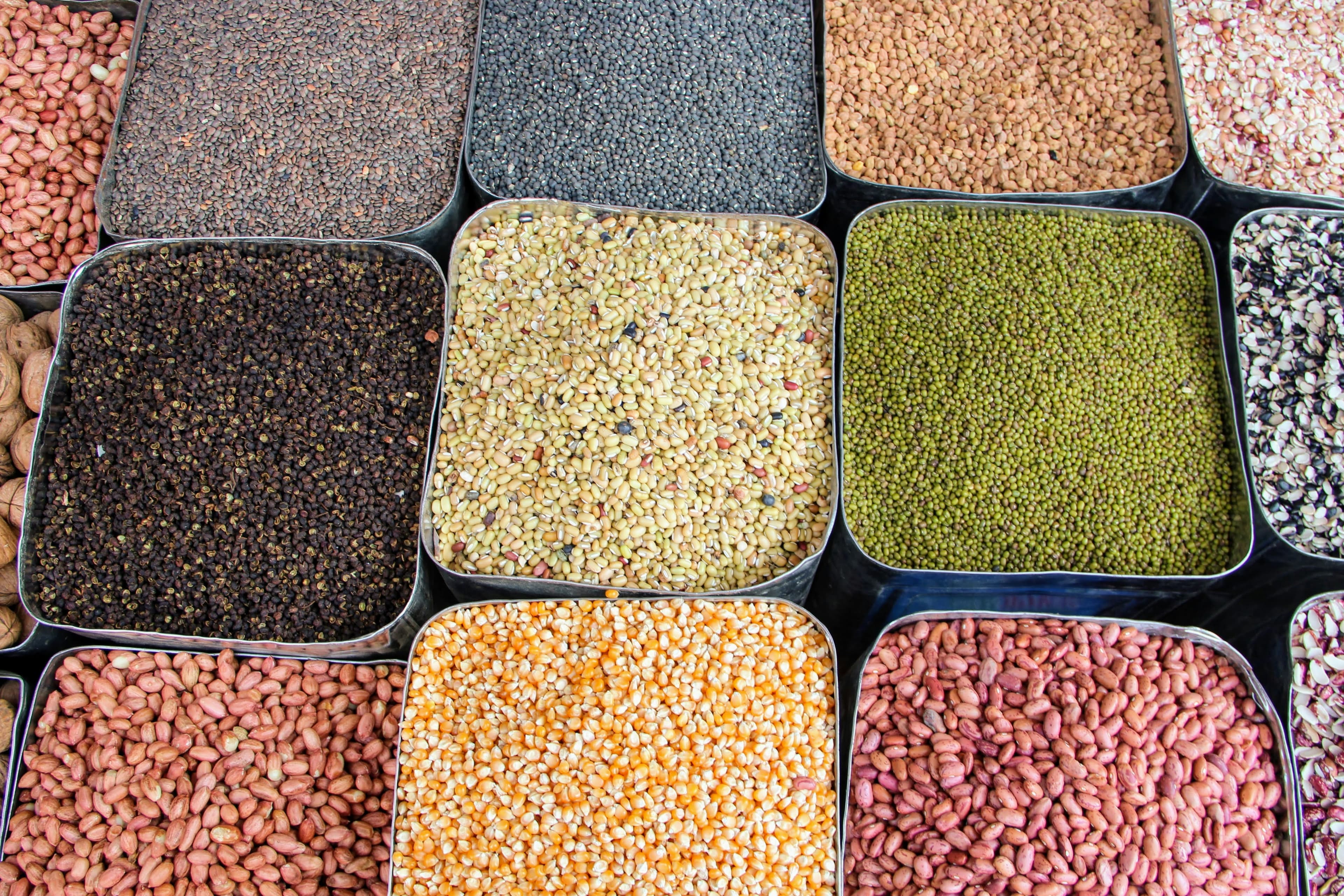Over the past decade, plant-based eating has shifted from a niche lifestyle choice to a global movement. Once associated primarily with vegetarians and vegans, plant-based diets have now entered the mainstream, embraced by people of all backgrounds for a variety of reasons—health, environmental sustainability, and even ethical concerns. But what exactly is driving this widespread shift toward plant-based eating, and why is it more than just a passing trend?
In this article, we’ll explore the multifaceted rise of plant-based eating, from its environmental benefits to its impact on personal health. We’ll also look at how the food industry has responded, the challenges some people face when adopting a plant-based diet, and how this growing movement is changing the future of food.
The Environmental Impact of Plant-Based Diets
The environmental toll of animal agriculture is staggering. From deforestation to greenhouse gas emissions, meat and dairy production contribute significantly to climate change. According to the United Nations, livestock farming is responsible for nearly 15% of global greenhouse gas emissions—more than all forms of transportation combined.
Switching to a plant-based diet, even partially, can dramatically reduce your carbon footprint. A 2018 study published in Science found that adopting a plant-based diet could reduce food-related emissions by up to 73%. Choosing plant-based options reduces demand for water, land, and other resources, which are all essential in an era of rapidly depleting environmental reserves.
People are increasingly aware of these facts, and many are choosing plant-based diets as a way to contribute positively to the environment. Whether it’s for the sake of reducing their personal impact or promoting sustainability on a larger scale, plant-based eating is seen as an effective way to tackle the environmental crisis head-on.
Health Benefits of Going Plant-Based
In addition to its environmental impact, plant-based eating offers a range of health benefits. Research consistently shows that a diet rich in fruits, vegetables, whole grains, nuts, and legumes can help prevent chronic diseases, improve digestion, and boost overall health.
Studies have linked plant-based diets to lower rates of heart disease, diabetes, high blood pressure, and certain types of cancer. For example, a study published in JAMA Internal Medicine found that those who followed a plant-based diet had a significantly lower risk of heart disease compared to those who consumed more animal products.
Plant-based diets are also typically high in fiber, antioxidants, and anti-inflammatory compounds, all of which support a healthy immune system. The Mediterranean diet, which is largely plant-based, is often recommended by doctors for its heart-healthy effects, and it’s widely recognized for promoting longevity.
Debunking Common Myths About Plant-Based Diets
Despite the growing popularity of plant-based eating, several myths persist about this lifestyle. One of the most common misconceptions is that a plant-based diet doesn’t provide enough protein. In reality, there are plenty of plant-based sources of protein, such as beans, lentils, tofu, tempeh, quinoa, and edamame.
Another myth is that plant-based diets are too expensive. While some plant-based specialty items can be pricey, staples like beans, rice, lentils, and vegetables are often more affordable than meat and dairy products. Moreover, plant-based eating can reduce the need for expensive processed foods and medications down the line, as a healthy plant-based diet may help prevent chronic diseases.
Some people also worry about missing out on flavor, but the growing availability of plant-based ingredients, spices, and plant-based meats has made it easier than ever to enjoy flavorful and satisfying meals without animal products. With endless options, creativity, and seasonings, plant-based eating can be just as delicious as it is nutritious.
The Global Shift Toward Plant-Based Eating
The trend of plant-based eating is not confined to any one country or culture. While the movement has been particularly popular in Western countries, it’s also growing in regions like Asia, Latin America, and Africa. In fact, many cultures around the world have long practiced plant-based eating, often for reasons of tradition, spirituality, or availability of resources.
In India, for instance, plant-based diets have been part of the culture for thousands of years, driven by religious beliefs and a strong connection to vegetarianism. Similarly, African and Caribbean cuisines often feature plant-based dishes using ingredients like yams, beans, and plantains. As plant-based eating becomes more accessible globally, it’s combining with these age-old traditions to form new ways of eating.
Global brands and restaurants are also catching on. Fast-food chains like McDonald's and Burger King have introduced plant-based burgers, while brands like Beyond Meat and Impossible Foods are bringing innovative meat substitutes to grocery stores. Even traditional butchers are offering plant-based alternatives, making it easier for people to switch to a more sustainable, plant-based diet without feeling restricted.
Top Plant-Based Ingredients to Know
While there’s a vast array of plant-based ingredients available, here are a few key staples that make plant-based eating both delicious and nutritious:
Legumes: Lentils, chickpeas, and beans are high in protein, fiber, and essential vitamins.
Tofu & Tempeh: These soy-based products are excellent sources of protein and can take on many different flavors.
Quinoa: A complete protein, quinoa is a perfect alternative to rice or couscous.
Nutritional Yeast: This savory, cheesy-tasting ingredient is rich in B-vitamins and can be sprinkled on everything from popcorn to pasta.
Avocados: High in healthy fats, avocados are perfect for creating creamy textures in smoothies, salads, and even desserts.
The Rise of Plant-Based Alternatives
The plant-based food market has exploded in recent years. Alternatives to meat, dairy, and eggs are now available in almost every grocery store, making it easier for people to adopt plant-based eating without feeling deprived. Plant-based milks (like almond, oat, and soy), vegan cheeses, and plant-based meats are not only better for the planet but are also increasingly sophisticated in taste and texture.
Beyond Meat and Impossible Foods have revolutionized the concept of plant-based meat alternatives, offering products that mimic the taste, texture, and look of traditional meat. These innovations have been pivotal in attracting meat-eaters to try plant-based options without sacrificing flavor or satisfaction.
How to Transition to a Plant-Based Diet
If you’re considering making the switch to a plant-based diet, the key is to take it one step at a time. Start by adding more plant-based meals to your week, experimenting with new ingredients, and finding plant-based versions of your favorite dishes. Gradually cut down on animal products, and before you know it, your diet will naturally shift toward a more plant-based focus.
Another great way to transition is to find plant-based versions of your favorite comfort foods. Vegan pizza, plant-based burgers, and dairy-free ice cream are all great options to satisfy cravings while sticking to a plant-based diet.
Challenges of Plant-Based Eating and How to Overcome Them
While plant-based eating offers many benefits, it’s not without its challenges. For some, it can be difficult to find plant-based options when dining out or traveling. And for others, it might take time to get used to the new flavors and textures of plant-based foods. One way to overcome this is by getting creative in the kitchen and trying new recipes at home, as this can open up a world of new flavors and dishes.
Another common challenge is ensuring that your diet is nutritionally balanced. While a plant-based diet is rich in many essential nutrients, it’s important to pay attention to vitamins like B12, iron, and omega-3 fatty acids, which are often found in animal products. Luckily, these nutrients can be obtained from plant-based sources or supplements.
Is a Plant-Based Future on the Horizon?
The rise of plant-based eating is more than just a passing trend; it’s a fundamental shift in the way we view food. Whether motivated by health, the environment, or ethical considerations, millions of people are embracing plant-based diets as a means to improve their lives and the planet. With innovative alternatives, greater access to plant-based ingredients, and a growing awareness of the benefits, it’s clear that plant-based eating is here to stay.
The future of food is green, plant-based, and sustainable—are you ready to join the movement?
Loading...



